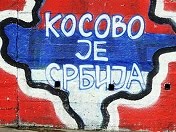Can you tell your siloviki from your civiliki? MVD, FSB or GRU? The breeds of dog underneath those Churchillian carpets? If not, maybe this will help.
In August 2010, I translated the introduction to political pundit Vladimir Pribylovsky’s recent book ВЛАСТЬ-2010: 60 биографий (Power in 2010: 60 biographies). The resulting Phantom Tandem, Real Triumvirate and the Kremlin Clan Wars is a useful, if a tad obdurate, primer on “who’s who” in today’s Kremlin.
In collaboration with A Good Treaty, we have created three tables listing the biggest players in the “Kremlin clans” according to Pribylovsky (to the extent they exist: see my comments to the original translation). There have been few changes until today, January 2011. The biggest was the replacement of Sergey Bogdanchikov by Eduard Khudaynatov as President of Rosneft.
We hope that it will be of use to all Russia watchers, amateur and expert alike.
The Sechin Clan (“siloviki”)
The Medvedev Coalition (“civiliki”)
“Putin’s People”
These classifications aren’t the only ones in existence: of particular note…
STRATFOR (2010)
eXile (2007)
But do take all this Byzantinism with a grain of salt.



























2 comentarii :
Foarte interesanta postarea !
N-am mai citit asa ceva pana acum
Am intrat întâmplător pe site-ul polonez (în engleză) A good treaty, căutând "Donald Tusk senat" - a fost huiduit când a vorbit despre ancheta în legatură cu "accidentul" de avion de la Smolensk, "finalizată" de ruşi.
Trimiteți un comentariu